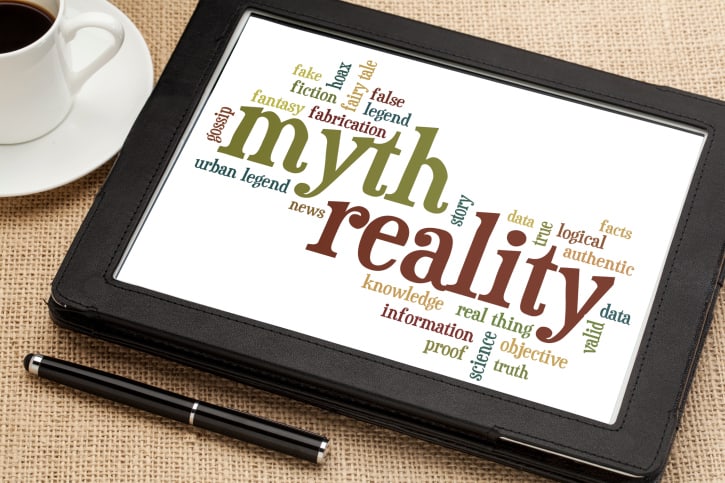Coffee Myths Busted: Part 1
 Breaking news: dark roast coffee affects shape of fingers
Breaking news: dark roast coffee affects shape of fingers
Headlines like these sometimes amuse you, but, as a provider of coffee services, they also scare you. Your business serves hundreds of coffee drinkers every day. When they see a news headline about coffee, whether its legitimate fact or media fabrication, they want answers. It’s your job, as a company who provides a coffee service, to give those answers. If you can’t, you look unprofessional, and your customers soon flock to a differentcoffee watering hole.
Customer service is important to you. You want to be able to answer all customer concerns, but cracking coffee myths isn’t exactly your specialty. It requires some high-energy brain cells and expert knowledge. Let our Java Geniuses help you out.
Below are some highly debated caffeine-related news reports, our genius take on them – and the cold, hard proof to back it up.
Coffee Dehydrates You
Coffee, along with most other caffeinated drinks, does not disrupt your body’s natural balance of fluids, despite popular belief.
Caffeine is a diuretic, (it promotes urination) which leads people to believe it aids in dehydration. But don’t forget: half your coffee is water. Black coffee is made up of 95% water. With an h20 concentration that high, coffee is incapable of dehydrating. It actually does the opposite. Don’t believe us?
Sophie C. Killer conducted an experiment to disprove this same coffee myth. She compared water’s hydration effects to coffee’s alleged de-hydration effects. Participants of Killer’s study consumed four cups of coffee one day, and four cups of water the following day. The results (tested across various hydration indicators) proved that coffee hydrated just as much as water.
Espressos Carry More Caffeine Than Coffee
Perhaps it’s the term “shot” of espresso that leads people to believe the tiny drink carries extra-caffeinated power. But our Java Geniuses have put this common misconception to the test. After hours of measurement (and some extremely energized test participants) we came to a conclusion: 2 ounces of espresso contains about 120 milligrams of caffeine, which is the rough equivalent of a 10-ounce cup of gourmet coffee.
Your espresso seems like it packs an extra punch because of its size – the dessert drink is served in a 1-ounce cup. When you shoot down 120 milligrams of caffeine crammed into a tiny, 1-ounce teacup, you’re going to feel a bit more of a kick.
Next time you see an outrageous news article detailing the effects of coffee on eyeballs, think of your customers. You’ve been in the industry for a while now – you know your die-hard coffee fanatics are going to approach you with questions and concerns about the article they read. You have to be able to answer those concerns, or you risk losing loyal coffee consumers to another coffee service.
Our Java Geniuses are back next week to help you uncover more common coffee myths!
To learn more about busting coffee myths and keeping your coffee customers correctly informed, call 215-943-5700 or click on the link below to connect with The Java Geniuses at Quality Express Coffee.

 Order Online
Order Online